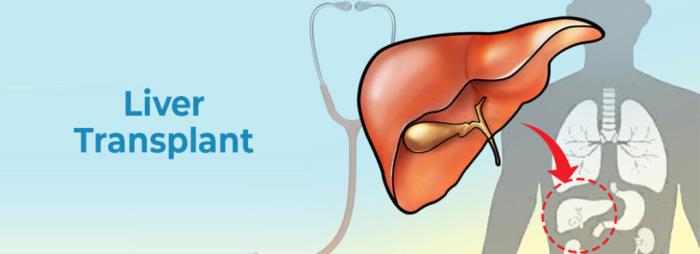Liver transplantation is a critical surgical procedure performed to replace a diseased liver with a healthy one from a donor. This procedure is essential for patients suffering from end-stage liver disease, which can arise from conditions such as cirrhosis, hepatitis, and liver cancer. The success of a liver transplant significantly depends on various factors, including the patient's overall health, the quality of the donor liver, and the lifestyle choices made by the recipient post-surgery. Optimizing these factors can lead to improved outcomes and longevity of the transplanted liver.
Medical disclaimer: This content is for general awareness and does not replace a doctor’s consultation. For diagnosis or treatment decisions, consult a qualified specialist.
The Role of Lifestyle in Liver Health and Recovery
Lifestyle choices play a pivotal role in the overall health of the liver and can greatly influence the success of liver transplantation. Factors such as diet, exercise, and substance use can either promote liver health or contribute to its deterioration. Post-transplant, adopting a healthier lifestyle can enhance recovery, reduce the risk of complications, and improve the function of the transplanted liver. Therefore, understanding how lifestyle changes can positively impact liver health is crucial for patients undergoing this life-altering procedure.
Importance of a Balanced Diet for Liver Transplant Success
A balanced diet is essential for liver transplant recipients to facilitate healing and support overall health. A diet rich in fruits, vegetables, whole grains, and lean proteins can provide the necessary nutrients to aid recovery. It is crucial to limit the intake of processed foods, high-sugar items, and saturated fats, as these can contribute to liver stress and complications. Moreover, staying hydrated and maintaining a healthy weight can further enhance liver function and transplant success.

Incorporating Regular Exercise into Your Routine
Engaging in regular physical activity is vital for liver transplant recipients. Exercise can help improve circulation, boost immune function, and enhance overall physical and mental well-being. It is recommended to start with low-impact activities such as walking or stretching, gradually increasing intensity as tolerated. Regular exercise can also aid in maintaining a healthy weight, which is essential for reducing the risk of post-transplant complications and ensuring the longevity of the transplanted liver.
Managing Alcohol Consumption Post-Transplant
Post-liver transplant, it is imperative to avoid alcohol consumption entirely. Alcohol can significantly harm the new liver and increase the risk of rejection and other complications. Patients should understand the importance of abstaining from alcohol and seek support if they struggle with cessation. Healthcare providers often recommend counseling and support groups to help patients navigate the challenges of maintaining sobriety, which is crucial for the success of the transplant.
Importance of Regular Medical Check-Ups After Transplant
Regular follow-up appointments with healthcare providers are essential for monitoring liver function and overall health after transplantation. These check-ups allow for timely identification and management of any potential complications, including rejection of the transplanted liver or infections. Patients should adhere to their medical regimen, including immunosuppressive medications, and communicate any changes in their health status to their healthcare team. Consistent monitoring can significantly enhance the chances of a successful transplant outcome.
The Role of Mental Health in Recovery from Liver Transplant
Mental health plays a crucial role in the recovery process following a liver transplant. Patients may experience a range of emotions, including anxiety, depression, or fear of complications. Addressing these mental health concerns through therapy, support groups, or counseling can improve coping strategies and promote adherence to treatment plans. A positive mental state can enhance the overall recovery experience and contribute to the success of the transplant.
Importance of Hydration for Liver Health
Staying adequately hydrated is essential for liver transplant recipients. Proper hydration supports metabolism, helps in the elimination of toxins, and promotes optimal liver function. Patients should aim to drink plenty of water throughout the day and limit beverages high in sugar or caffeine. Adequate hydration can also aid in recovery and contribute to overall health, making it an essential component of post-transplant care.

Understanding the Impact of Smoking on Liver Transplant Outcomes
Smoking is detrimental to overall health and poses significant risks for liver transplant recipients. It can impair immune function and increase the likelihood of complications such as infections and rejection of the transplanted liver. Quitting smoking is one of the most beneficial lifestyle changes a patient can make post-transplant. Support programs and cessation aids can help individuals successfully quit and improve their long-term health outcomes.
The Importance of Medication Adherence After Liver Transplant
Adhering to prescribed medications is critical for liver transplant recipients. Immunosuppressive medications are necessary to prevent the body from rejecting the new liver. Patients must understand the importance of taking medications as directed and attending all follow-up appointments. Non-adherence can lead to severe complications, including transplant failure. Education about the medications, their purpose, and potential side effects can empower patients to manage their health effectively.
Understanding the Role of Support Systems in Recovery
A strong support system is vital for individuals recovering from a liver transplant. Family, friends, and support groups can provide emotional and practical assistance during the recovery process. Engaging with others who have undergone similar experiences can offer valuable insights and encouragement. Patients should not hesitate to seek help from their loved ones or professionals, as this support can enhance their resilience and improve recovery outcomes.
Benefits of Nutritional Supplements for Liver Health
Nutritional supplements can play a beneficial role in supporting liver health post-transplant. Patients may require additional vitamins and minerals to aid recovery, especially if their diet is lacking in essential nutrients. However, it is crucial to consult with healthcare providers before starting any supplements, as some can interfere with medications or liver function. A tailored approach to supplementation can enhance recovery and promote overall well-being.
Recognizing Signs of Complications After Liver Transplant
Awareness of potential complications following a liver transplant is essential for timely intervention. Patients should be educated about signs of rejection, infection, or other issues that may arise, such as jaundice, fever, or abdominal pain. Prompt reporting of these symptoms to healthcare providers can lead to early diagnosis and treatment, significantly improving the chances of a successful recovery and the longevity of the transplanted liver.
The Importance of Preventive Health Measures Post-Transplant
Preventive health measures are crucial for liver transplant recipients to maintain their health and avoid complications. This includes vaccinations, routine screenings for cancers, and managing comorbid conditions such as diabetes or hypertension. A proactive approach to health can help identify potential issues early, allowing for timely intervention and contributing to the overall success of the transplant.
Understanding the Impact of Stress Management on Recovery
Effective stress management is vital for liver transplant recipients. Chronic stress can negatively affect the immune system and hinder recovery. Patients should explore various stress-relief techniques such as meditation, yoga, or deep-breathing exercises. Engaging in hobbies and maintaining social connections can also alleviate stress. By prioritizing mental well-being, patients can improve their recovery experience and enhance the success of their transplant.
Importance of Avoiding High-Risk Behaviors After Transplant
Post-transplant, it is crucial for patients to avoid high-risk behaviors that can jeopardize their health. This includes steering clear of unprotected sex, sharing needles, or engaging in activities that may lead to infections or injury. Educating patients about these risks and promoting safe practices can significantly enhance their recovery and the longevity of the transplanted liver.
Key Differences Between Liver Transplant and Liver Resection Surgery
Explore the differences between liver transplant and liver resection surgery. While liver resection involves removing a portion of the liver affected by disease, a transplant replaces the entire diseased liver with a healthy one. Learn when each procedure is recommended, their risks, and their recovery timelines.
Maintaining a Healthy Weight for Optimal Liver Function
Maintaining a healthy weight is essential for liver transplant recipients. Obesity can lead to complications such as fatty liver disease, which can adversely affect the transplanted organ. Patients should aim for a balanced diet and regular exercise to achieve and sustain a healthy weight. Weight management not only supports liver function but also enhances overall health and well-being, contributing to long-term transplant success.
Best Liver Transplant in India
The Best Liver Transplant in India provides life-saving treatment for patients with end-stage liver disease, offering advanced surgical techniques and comprehensive post-transplant care for successful recovery.
Best Liver Transplant Hospitals in India
The Best Liver Transplant Hospitals in India are equipped with cutting-edge technology and expert medical teams, ensuring top-notch care and optimal recovery for liver transplant patients.
Liver Transplant Cost in India
The Liver Transplant Cost in India offers an affordable solution for patients needing liver transplantation, ensuring access to world-class care at competitive pricing.
Best Liver Transplant Surgeons in India
The Best Liver Transplant Surgeons in India are highly skilled in performing liver transplants, providing precise surgeries and personalized care to ensure the best possible outcomes for their patients.
FAQs About Lifestyle Changes and Liver Transplant Success
What lifestyle changes can improve liver transplant outcomes?
Adopting a balanced diet, engaging in regular exercise, avoiding alcohol and smoking, and adhering to medication regimens can significantly improve liver transplant outcomes.
How important is mental health after a liver transplant?
Mental health is crucial post-transplant as it affects recovery and adherence to treatment. Seeking support for mental health issues can enhance overall well-being.
Can I take supplements after a liver transplant?
While some supplements may be beneficial, it is essential to consult with healthcare providers before starting any new supplements to avoid interactions with medications.
What signs should I watch for after my liver transplant?
Patients should be vigilant for signs of rejection, infection, or complications, such as jaundice, fever, or abdominal pain, and report these to their healthcare provider promptly.